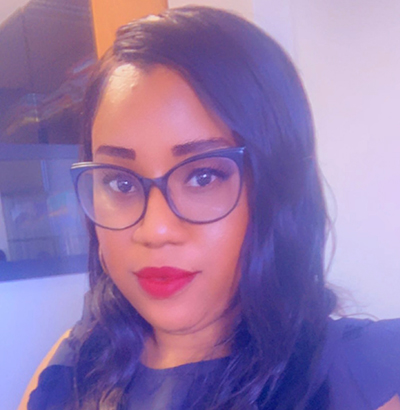
An Account Manager at the Senegalese Housing Bank (BHS), Bineta is based in Dakar, Senegal. Below is her introduction to BHS:
The International Monetary Fund describes the Senegalese Housing Bank (BHS) as a “major player in national housing finance.” Can you provide more detail on this?
As a leader in the field of housing and with 40 years of experience in this sector, BHS knows the real needs of the Senegalese and provides the best answers with products suitable for everyone.
The Senegal Housing Bank and its partners, developers, and housing cooperatives have contributed to the positive transformation of the Dakar region through the creation of new neighborhoods such as Grand Yoff, Ouest-Foire, Aéroport, Golf, and all the cities of Senegal.
It contributes daily to enabling access to housing for all categories of customers. It continues to develop its network of agencies in Dakar, inside and outside Senegal, to get closer to its customers.
Bineta Diallo
Bineta was a participant in our on-campus program on affordable housing in September 2023 and responded to a few of our questions after the program.
Senegal has grown rapidly in recent years. What has the impact of this economic growth been on housing?
Economic growth and the resulting urbanization increased the need for housing significantly. However, there’s still a gap between the supply and demand for affordable housing; the demand is greater than the supply. It has also led to the rise of construction costs and an increase in land value, causing a crisis in the industry. Housing is nowadays expensive.
Before the program, you wanted to learn about the US affordable housing system and what elements can be adapted for Senegal. What did you learn?
This program has given me much information about the US affordable housing system. There are some differences in the financing side of affordable housing. Developers in the US have many options for getting funds for their projects. The funding and facilities system in my country is mainly related to Banks. When developers have some projects, the financial part is taken care of by the financial institutions, particularly in that field, the Senegalese Housing Bank. I also noticed that developers could use public-private partnerships to exploit the site after construction.
Besides, there are different programs for different income levels for rental and then ownership if the income rises. I also visited some affordable apartments as a part of the program. In my country, when discussing affordable housing, it’s really about houses, not apartments. For rentals, for example, developers can include options to own the home after several years of renting. In the United States, I also saw that there are a lot of subsidies for real estate developers.
Would you recommend others who work in housing in rapidly developing countries sign up for this program? If so, why?
I recommend that those working in housing in rapidly developing countries attend the course, it’s worth it. It has all the tools to learn durable and globally applicable practices and discover how to adapt principles and approaches to individual contexts. In addition, you will be able to master the universal fundamentals of affordable housing and understand how they can be adapted by place, policy, and laws.
Different people come from all around the world and have various backgrounds. You will have the opportunity to visit some construction sites and contact some developers.
I should also mention the case studies that demonstrate the challenges faced by the affordable housing sector and what solutions are needed to be implemented in real projects.
